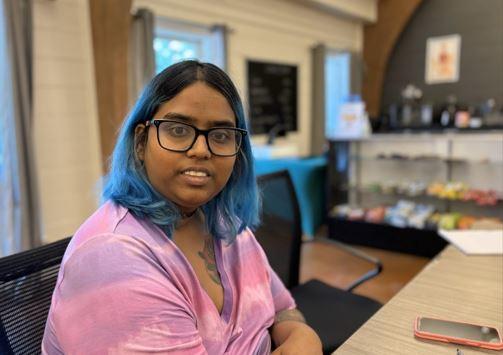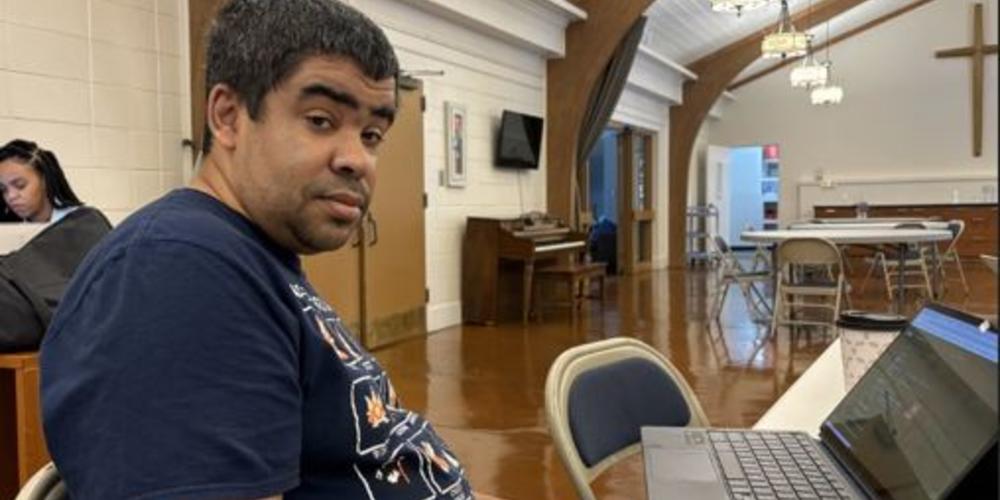
Clubhouse member Chris Price sits at his desk at Clubhouse Atlanta in Dunwoody.
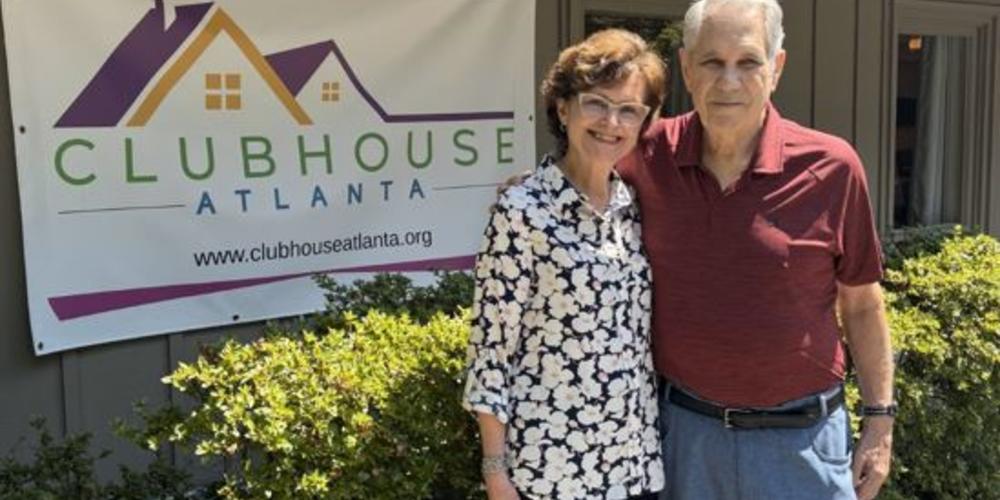
Susie Kyle (left) and Bill McClung founded Clubhouse Atlanta after years of working together with organizations like the National Alliance on Mental Illness Georgia chapter.
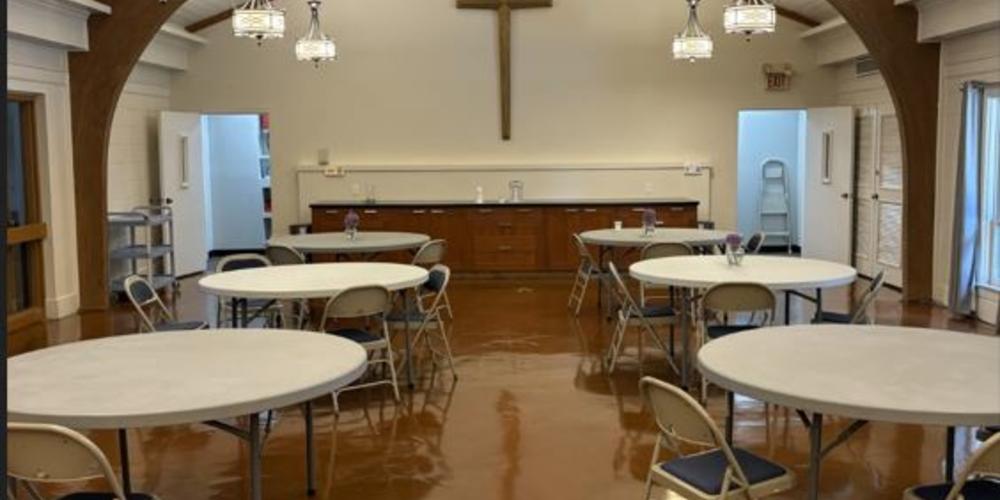
A giant cross on the back wall is seen in Clubhouse Atlanta's dining room.
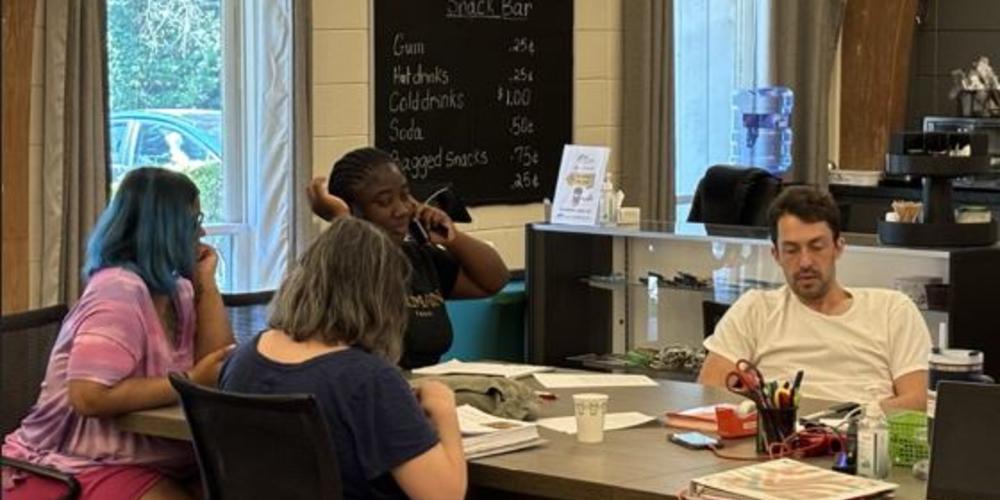
Members of Clubhouse Atlanta gather in a common area.
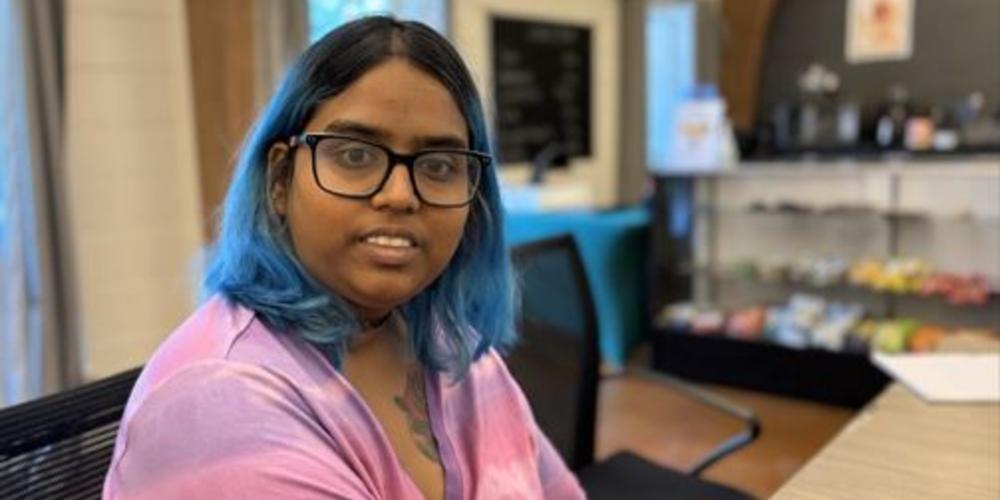
Lily Hesketh, a Clubhouse Atlanta member, said, "If I had something like this when I was younger, I believe that I would probably be a little bit in a better space."

Denise Brodsky is Clubhouse Atlanta's executive director.
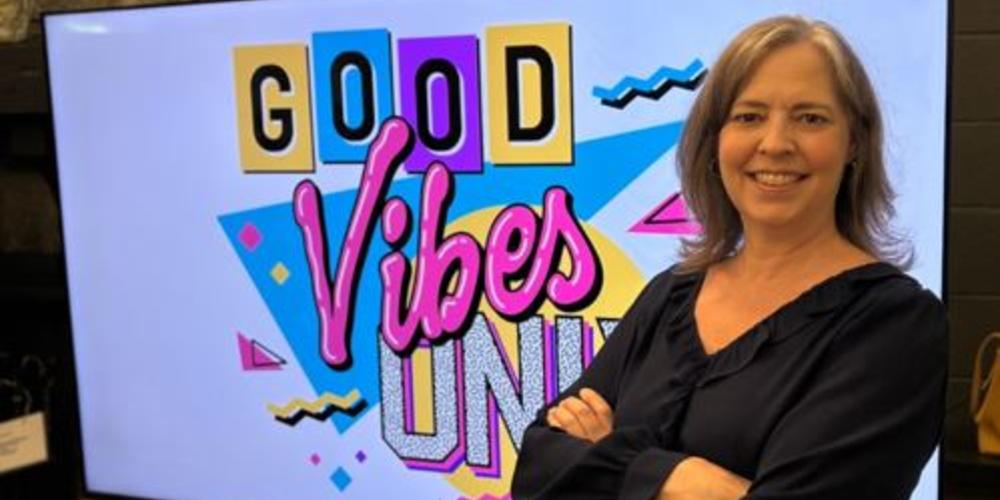
State Sen. Sally Harrell is a supporter of Clubhouse Atlanta. "it just made perfect sense to me," she said.







